English translation of 华灯初上, by Eliderad.
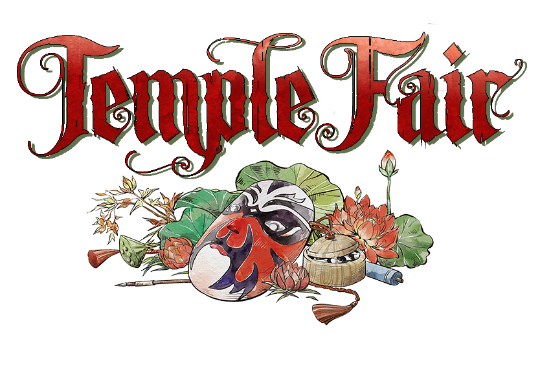
English translation of 华灯初上, by Eliderad.

 Temple Fair is the first season of Festival of Lanterns, an English translation of the Chinese Blood on the Clocktower character collection Hua Deng Chu Shang (华灯初上), published by Chinese BotC distributor Gstone Games.
Temple Fair is the first season of Festival of Lanterns, an English translation of the Chinese Blood on the Clocktower character collection Hua Deng Chu Shang (华灯初上), published by Chinese BotC distributor Gstone Games.
The previous fan translations of the collection tend to be more faithful to the original Chinese. This often means that the ability texts end up being too long and don’t follow the established wordings of official characters. I have worked to fix these issues in my translation.
You can find some older translations here:
While Gstone has not published an English translation of their own, they did provide English names for all the characters. However, many of their suggestions did not fit the naming patterns for official characters, so I have also adjusted the names in the translation. To my joy, Gstone noticed my translation and began using some of my names! I will leave their old translations for posterity, together with my comments on each translation.
If you have any feedback on the translation, feel free to contact me @Eliderad on Discord.
I did not make any of these characters, so I am not taking feedback on balance adjustments.
Click here to find scripts, jsons and print-and-play files to try out the collection! I do not recommend the json generated by Bloodstar.
Please note that Temple Fair is not a script, but a character collection. Use the characters within to make your own custom scripts — the characters were not meant to be played all together.
Click here to find my translation of Festival of Lanterns season two!

You start knowing 2 good players: 1 is drunk, even if you are dead.
The Waiter knows their regulars and makes sure they have plenty to drink.
On their first night, the Waiter learns two players that are good at that point.
One of the players the Waiter learns is drunk the whole game, even if the Waiter dies.
If created mid-game, the Waiter learns their information that night, and one of the players they know is drunk from then on.
If a dead player becomes the Waiter, they do not learn two good players, but 1 good player is drunk from then on.
The Waiter learns the Snake Charmer and the Philosopher. The Philosopher is drunk. Later, the Snake Charmer chooses the Demon and becomes the evil Demon, but the Waiter still thinks that they are good.
The Pacifist is turned into the Waiter. They learn the Alchemist and the Lycanthrope, who is made drunk. Later, the Lycanthrope attempts to kill themself, but fails.
While preparing the first night, put the Waiter’s KNOWN token by any good player token, and put the Waiter’s DRUNK token by any other good player token.
During the first night, wake the Waiter and point to the players marked KNOWN and DRUNK. Put the Waiter to sleep. The player marked DRUNK will remain drunk for as long as the Waiter is in play.
Chinese name: 店小二 (Dian Xiao Er)
Gstone’s English name: Inn Waiter
Explanation: As we already have an Innkeeper, adding an Inn Waiter is asking for confusion. Luckily, there is no Waiter, so this character can take that name.
If the Waiter learns false info due to drunkenness, poisoning or an ability such as the Vortox forcing false info, they may either learn 2 evil players or 1 good and 1 evil player. Either way, one of the players the Waiter learned becomes drunk when the Waiter becomes sober and healthy. It is not recommended to make an evil player drunk this way.
Townsfolk

You start knowing 2 good & 2 evil characters, exactly 2 of which are in play.
The Yinyang Diviner learns 4 characters, but not which of them are in play.
The Storyteller decides which in-play characters should be shown to the Yinyang Diviner. It could be 1 good and 1 evil, 2 good or 2 evil characters.
Characters such as the Recluse or the Spy can register as a different character to disrupt the Yinyang Diviner’s info.
If a Yinyang Diviner enters play mid-game, they learn their info that night instead.
The Yinyang Diviner learns the Fortune Teller, the Goon, the Cerenovus and the Lleech. Only the Goon and the Cerenovus are in play.
The Yinyang Diviner learns the Soldier, the Undertaker, the Witch and the Mezepheles. None of these characters are in play; the Recluse is registering as the Witch and the Spy is registering as the Undertaker using their abilities.
The Pit-Hag creates a Yinyang Diviner mid-game. The Fang Gu attacks the Mutant and dies, turning the Mutant into the new Fang Gu. The Yinyang Diviner learns the Clockmaker, the Mutant, the Pit-Hag and the Fang Gu. Since the Pit-Hag and the Fang Gu are in play, and there is no longer a Mutant in play, this info is correct.
During setup, decide which characters to show to the Yinyang Diviner: two good characters and two evil characters, any two of which are in play. Mark the in-play character tokens with the Yinyang Diviner’s LEARNED reminder tokens. Keep the two not-in-play character tokens available.
During the first night, wake the Yinyang Diviner and show them the four character tokens. Put the Yinyang Diviner to sleep.
Chinese name: 阴阳师 (Yin Yang Shi)
Gstone’s English name: Yin-Yang Diviner
Explanation: The suggested English translation is fairly long, but keeping only Diviner misses out on the important yin-yang element. I’m trying this without the hyphen to make it fit on the character sheet. Just keeping it as Yinyangshi is also an option.
If the Yinyang Diviner must learn false info, they still learn 2 good and 2 evil characters, but cannot learn exactly 2 in-play characters.
Townsfolk

You start knowing if your closest evil player is clockwise, anti-clockwise or equal. If they neighbor you, this info is false.
The Stargazer can see evil in the stars, but is blinded if they’re too close.
The closest evil player is the player the smallest number of steps from the Stargazer to the evil player.
If the evil players are equidistant, that means that the closest evil player clockwise is the same number of steps away from the Stargazer as the closest evil player anti-clockwise. If they are equidistant, the Storyteller shows this by pointing down instead of to the side.
If either of the Stargazer’s two neighbors is evil, the Stargazer learns false info. If one neighbor is evil, the Stargazer learns the opposite direction or equidistant. If both are evil, the Stargazer cannot learn that they are equidistant.
The Stargazer does not learn the number of steps from them to the closest evil player.
If the Stargazer is created mid-game, they learn their information that night. Dead players are included in the count.
The Stargazer’s clockwise neighbors are the Klutz, then the Psychopath. The Stargazer’s anti-clockwise neighbors are the Juggler, then the good Judge, then the Po. The Stargazer learns “clockwise”.
The Stargazer is created mid-game. The Stargazer’s clockwise neighbor is the dead Marionette, and their anti-clockwise neighbor is the alive Fang Gu. The Stargazer can learn either “clockwise” or “anti-clockwise” , but not “equidistant”, since that is correct info.
On the first night, wake the Stargazer. Point your finger horizontally in the direction of the closest evil player to the Stargazer, or point your finger downwards if the evil players on both sides are equidistant to the Stargazer. If the Stargazer neighbors an evil player, give false info. Put the Stargazer to sleep.
Chinese name: 钦天监 (Qin Tian Jian)
Gstone’s English name: Bureau of Astronomy
Explanation: Naming a character after a governmental agency is odd, not to mention Gstone’s name is very long. Renaming the character to Astronomer seems more reasonable, though Stargazer runs less risk of being confused with the unreleased character Astrologer.
Townsfolk

Each night, choose a Townsfolk character: their ability yields false info until dusk.
The Rascal is mischevious and confuses other Townsfolk.
Each night, the Rascal has to choose a Townsfolk character. If they are in play, the player with that character will learn false info until dusk, and will give false info to other players.
If the chosen player is drunk or poisoned, they have no ability and cannot give false info to other players, but they still learn false info from the ability they think they have.
The chosen player still learns correct info from other abilities and basic rules, such as what their alignment is and what character they are.
The Rascal only affects the player who is the chosen character. They do not affect players who have the chosen ability without being the character.
If the Rascal chooses an out-of-play character that then enters play, they are still affected by the Rascal’s ability.
The Rascal chooses the Empath, who neighbors 2 evil players. Tonight, the Empath learns 0.
The Rascal chooses the Flowergirl. The Philosopher chooses to gain the Flowergirl’s ability and learns correct info. The now drunk Flowergirl learns false info.
Each night, wake the Rascal. They point to any Townsfolk character on their character sheet. Put the Rascal to sleep.
If the chosen character is in play, mark the player of the chosen character with the FALSE INFO reminder token.
If a player with the FALSE INFO reminder token uses their ability to yield info, provide false info.
At dusk, remove the FALSE INFO reminder token.
Chinese name: 熊孩子 (Xiong Hai Zi)
Gstone’s English name: Naughty Boy
Explanation: English has a lot of synonyms for naughty child, so there’s no reason not to use one of them, especially considering the fact that so very few official character follow the name pattern adjective+noun: only Evil Twin and Scarlet Woman.
Townsfolk

Each night, choose a player (not yourself): you learn a word related to their ability.
The Herb Doctor can infer things about players’ capabilities.
Each night, the Herb Doctor chooses a player. They learn a word related to that players ability. The Storyteller can write the word on a piece of paper or a phone or other device, and show it to the Herb Doctor.
The word that the Herb Doctor learns could be a word that appears in the chosen player’s character ability text, such as “mad”, “night” or “die”. It can also be a word describing the ability, such as “protect”, “support” or “recurring”.
The Herb Doctor generally only learns one word at a time. The word should be meaningful, not a function word such as “is” or “on”. The word should also not be made up or a compound of many other words.
The Herb Doctor can choose the same player each night, and can choose dead players. The Herb Doctor cannot choose themself.
The Herb Doctor chooses the Damsel and learns the word “public”. Next night, they choose the Juggler and learn the word “public”.
The Herb Doctor chooses the Bounty Hunter and learns the word “evil”, since the Bounty Hunter has the word “evil” in their name.
The Herb Doctor chooses the Lycanthrope and learns the word “sacrifice”. Next night, they choose the Soldier and learn the word “brave”.
Each night, wake the Herb Doctor. They point to any player. Write a word referring to that player’s character ability and show it to the Herb Doctor. Put the Herb Doctor to sleep.
Chinese name: 郎中 (Lang Zhong)
Gstone’s English name: Herb Doctor
Explanation: No notes – the suggested name works well.
In the early game, you can give the Herb Doctor more ambiguous words so they don’t immediately guess the character of the chosen player. If the good team is at a disadvantage, you can give the Herb Doctor more unambiguous words.
Townsfolk

Each night, the 1st time an ability begins affecting one of your alive neighbors, it fails: you learn when this happens.
The Abbot shelters their neighbors indiscriminately.
The Abbot’s ability works once per night.
If an evil player’s ability would affect one of the Abbot’s alive neighbours, it fails. In many cases, this is similar to the evil player becoming drunk, but if they act multiple times, only the time they target the Abbot’s neighbor fails.
The Abbot only causes evil players’ abilities to fail during the night. Abilities that take effect during the day still happen as normal.
The Abbot only protects from abilities that have not yet activated. If an Abbot’s living neighbor dies, and the next living neighbor was previously poisoned, the Abbot cannot remove the poisoning.
When the Abbot’s ability activates, the Storyteller wakes the Abbot. The Abbot does not learn which player’s or character’s ability they prevented, nor do they learn which neighbor they protected. They only learn that their ability activated.
If the Abbot cannot protect their neighbors from an evil player’s ability, the Abbot’s ability does not activate and they do not wake up.
The Imp kills themself at night. The Baron is the closest living neighbor to the Abbot, and thus cannot be affected by the Imp’s ability. As there is no living Demon, the Storyteller announces that the game ends and the good team wins.
The Assassin chooses to attack the Fool, who is neighboring the Abbot. The Fool dies, and the Abbot does not wake.
The Philosopher is sitting between the Abbot and the Snake Charmer, whose other neighbor is the Town Crier. The Snake Charmer chooses a player who is the No Dashii and becomes the evil No Dashii. The Philosopher and the Town Crier are about to be poisoned due to the new No Dashii’s ability, but since the Philosopher is sitting next to the Abbot, the No Dashii’s poisoning fails, and neither the Philosopher nor the Town Crier are poisoned. The No Dashii’s ability to kill a player tonight is unaffected. On the next day, the No Dashii poisons the Philosopher and the Town Crier, as the Abbot’s ability is not active during the day. The following night, the Philosopher and the Town Crier remain poisoned, as the Abbot cannot prevent abilities that have already activated.
At night, if an evil player uses their ability to target one of the Abbot’s living neighbors, or if an evil player’s ability would passively begin affecting one of the Abbot’s living neighbors, it fails: treat the evil player as if they are drunk in this instance. Place the Abbot’s PACIFIED reminder token next to the Abbot. Then, wake the Abbot and show them the Abbot character token. Put the Abbot to sleep.
If one of the Abbot’s neighbors would be targeted or affected by an evil player’s ability and the Abbot’s PACIFIED token is placed, resolve the evil player’s ability as normal.
At dawn, remove the Abbot’s PACIFIED reminder token. If the pacified ability has a continuous effect, it takes effect again once the PACIFIED token is removed.
Chinese name: 和尚 (He Shang)
Gstone’s English name: Buddhist Monk
Explanation: A heshang is literally a Buddhist monk. However, Blood on the Clocktower already has a character called the Monk, as well as a character called the Buddhist. English synonyms for monk all seem to pertain to Christianity, though the word abbot seems to have a somewhat wider usage. An alternative would be to keep it as Heshang, which also makes it clear that this is not a Western or Christian abbot.
Abbot & Leviathan
If the Leviathan nominates and executes one of the Abbot’s alive neighbors, that player does not die. That night, the Abbot learns that their ability has activated, and their ability cannot activate again tonight.
Abbot & Kazali The Kazali can choose that a player neighboring the Abbot is one of their evil Minions.
Townsfolk
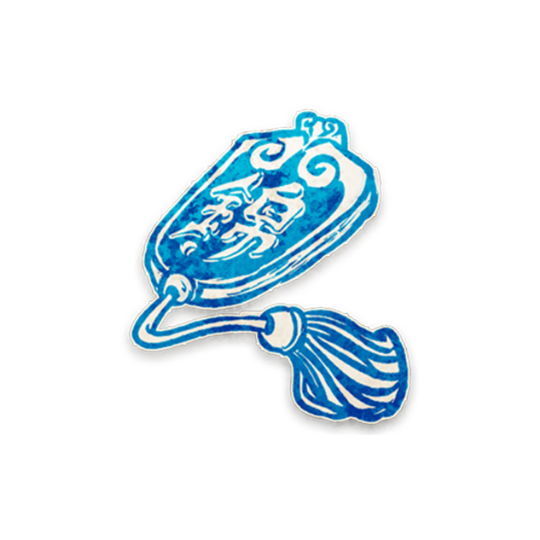
Each night*, choose a player: until dusk tomorrow, if they die, you die instead.
The Brocadier protects other players with their life.
Each night except the first, the Brocadierchooses a player. If the chosen player is about to die, they live and the Brocadier dies instead.
The dead Brocadier loses their ability and cannot protect the chosen player again the same night. The Brocadier can protect a player only once.
If the chosen player is about to die but is also protected by other abilities, the Brocadier’s ability has no effect, and the Brocadier does not die due to their ability.
If the Brocadier cannot die for some reason, they cannot protect the chosen player from dying.
The Brocadier’s protection lasts during the day. The chosen player can survive execution, exile and anything else that may cause them to die during the day. The Brocadier will die instead.
If the Brocadier successfully protects a player, they die due to their own ability, not due to what would have killed the protected player. Abilities that rely on the chosen player dying have no effect.
The Brocadier can choose dead players, but since a dead player cannot die again, the Brocadier’s ability will have no effect in this case.
The Brocadier chooses the Imp. The Imp chooses to kill themself, but survives, and no Minion becomes the Imp. The Brocadier dies.
The Brocadier chooses the Balloonist. The nexst day, the Psychopath chooses to attack the Balloonist. The Balloonist survives, and the Brocadier dies.
Each night except the first, wake the Brocadier. They point to a player. Mark that player with the PROTECTED reminder token. Put the Brocadier to sleep.
If the player marked with the Brocadier's PROTECTED reminder token is about to die, and the Brocadier can protect them from death, the marked player does not die. If this happens during the day, declare that the Brocadier dies, and remove the PROTECTED reminder token. If this happens at night, place the DEAD reminder token by the Brocadier’s character token, and remove the PROTECTED reminder token. At dawn, declare that the Brocadier died in the night.
At dusk, remove the PROTECTED reminder token if it is still placed.
Chinese name: 锦衣卫 (Jin Yi Wei)
Gstone’s English name: Royal Guard
Explanation: The translation Royal Guard is cognitively problematic in a character collection that also includes an Imperial Guard, not to mention the fact that they are, of course, both connected to the empire. The Chinese name refers to the brocade-clothing guards that served as the imperial secret police, and the name Brocade Guard seems close at hand. However, creative license allows us to take this one step further, and I propose Brocadier, as a pun on brigadier. Blood on the Clocktower is, after all, not averse to constructing new words to serve as punny character names, considering Vigormortis and Yaggababble.
Townsfolk

Each night*, guess your number of steps to the 1st to die tonight: if correct, you might die tonight, but no one else.
The Firewatcher keeps an eye out on areas at risk at night.
The Firewatcher protects players a certain number of steps away from themself. This means that the Firewatcher will usually protect two players: clockwise and anti-clockwise.
If the first player to die at night is exactly as many steps from the Firewatcher as the Firewatcher guessed, that player will not die tonight.
If the Firewatcher successfully prevents the death of a player, no other player except the Firewatcher can die that night.
The Firewatcher does not protect themself, and may in fact die to their own ability if they successfully protect somebody else.
The Firewatcher’s number takes into account all players, not just all living players. If both of the Firewatcher’s neighbors are dead, a guess of "1" will not have any effect as those two neighbors can’t die again. In the late game, the Firewatcher will often only be able to protect one player at a time, not two.
The Firewatcher can guess "0", choosing themself. If the Firewatcher then is the first to die that night, the Firewatcher dies as normal, but nobody else may die that night.
If the first player to die at night is not sitting the guessed number of steps away from the Firewatcher, or if nobody dies, then the Firewatcher’s ability does not activate. The players they chose are not protected by the Firewatcher for the rest of the night, and the Firewatcher will not die due to their own ability that night.
The Firewatcher guesses "2". Tonight, the Demon attacks a player 2 steps away from the Firewatcher, and then the Godfather attacks a player 5 steps away from the Firewatcher. The Demon is the first character to cause a death tonight, so the Firewatcher’s ability activates, and neither the Demon nor the Godfather succeed in killing their targets. Towards the end of the night, the Storyteller decides that the Firewatcher dies.
The Firewatcher guesses "2". Tonight, the Po chooses no-one. The Assassin chooses to kill a player 2 steps away from the Firewatcher. That player dies, and the Firewatcher stays alive, as they did not manage to protect anybody.
The Firewatcher guesses "2". Tonight, the Demon attacks a player 3 steps away from the Firewatcher, and the Godfather attacks a player 2 steps away. Since the Demon attacked before the Godfather, both targeted players die, and the Firewatcher stays alive.
Each night except the first, wake the Firewatcher. They hold up a number of fingers (0, 1, 2 etc.) indicating the distance in players from themself to the players they want to protect. Mark both players that distance away with the PROTECTED reminder tokens. Put the Firewatcher to sleep.
If a player marked with a PROTECTED token would then be the first player to die that night, place the PROTECTED token in the center of the Grimoire. No player except for the Firewatcher can die tonight. If the Firewatcher survives the night, decide if they should die to their own ability or not: if yes, mark them with the DEAD reminder token. At dawn, remove all PROTECTED reminders and declare if any players died at night, without saying why or how they died or survived.
If a player not marked with a PROTECTED reminder token is the first to die at night, remove all PROTECTED reminder tokens and resolve the death and the rest of the night normally.
Chinese name: 打更人 (Da Geng Ren)
Gstone’s English name: Rattle Watchman
Explanation: Da geng ren is best translated as Nightwatchman, but that name is already taken. Among other things, these watchmen helped keep the time at night and prevent fires, and considering the protective ability, the aspect of fire prevention seems more relevant in the name.
Firewatcher & Lycanthrope
If the Lycanthrope chooses a player the Firewatcher guessed, only the Firewatcher dies tonight.
Firewatcher & Riot If nobody dies on night 3 and a player guessed by the Firewatcher is the first nominee on the Riot day, they do not immediately die.
Townsfolk
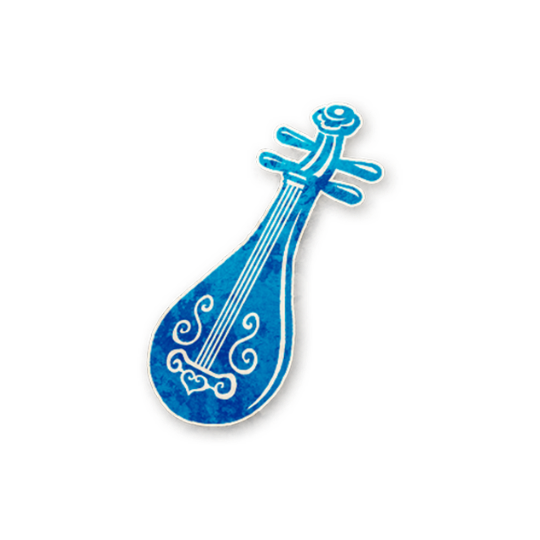
Once per game, during the day, publicly choose any volunteers. If a Demon is chosen, you die tonight.
The Singer invites players to a performance, but risks exposing themself to the Demon.
The Singer can choose to use their ability at any time during the day, and must declare to everyone when they’re using it.
When the Singer has declared that they’re using their ability, all players (whether they are alive or dead) are asked to raise their hands if they would like to attend the Singer’s performance. The Singer may choose any number of players who have their hands raised. All players know whom the Singer has chosen.
If the Demon had their hand raised and was chosen by the Singer, the Singer dies tonight.
If a non-Demon player chosen by the Singer becomes a Demon later, the Singer does not die due to their own ability tonight.
If the Singer was drunk or poisoned when they chose the Demon today, they still die if they are sober and healthy tonight.
A Singer that uses their ability while poisoned or drunk may not use it again.
Players may say whatever they want at any time, so a player may pretend to be the Singer and use their ability.
The Singer reveals themself and invites the group to a performance. 5 players raise their hands to volunteer as audience. The Singer selects the alive Tinker, the alive Pit-Hag and the dead Fang Gu. The Singer dies tonight.
Once per game, during the day, the Singer can declare that they wish to use their ability. If so, all players are told to raise their hands if they want to chosen by the Singer. If necessary, count down from 3 to 1 to let the players know how long they have to decide. When the time is out, ask the Singer to choose any players who have their hand raised. If the Demon is chosen, mark the Singer with the DEAD reminder token. Mark the Singer with the NO ABILITY reminder token.
Tonight, if the Singer is marked with the DEAD reminder token, they die.
Chinese name: 歌伶 (Ge Ling)
Gstone’s English name: Opera Singer
Explanation: Opera is a Western art form, and while the word has come to be used as a translation for several Chinese musical theatre styles, it still primarily evokes the Western style in an English translation, which just clashes with the lute icon. Singer is a better option. My previous translation was Diva to maintain the opera connotations without actually referring to the opera, but there is nothing that really suggests opera is relevant here whatsoever.
Townsfolk

You think you are an Outsider. If affected by an evil player’s ability, you first become a not-in-play Townsfolk.
The Enlightened One realizes that they can’t sit back when evil is upon them.
During setup, the Enlightened One’s token does not go in the bag. Instead, an Outsider character token goes in the bag, and the player who draws that token is secretly the Enlightened One. The Storyteller knows. The player does not.
The Enlightened One does not have the Outsider ability they think they have.
If the Enlightened One is targeted or affected by an evil player’s ability, the Enlightened One will change characters and become a not-in-play Townsfolk character before the evil player’s ability takes effect.
If the Enlightened One changes characters during the day, the learn of their new character immediately at the start of the night.
If the Enlightened One first changes character due to their own ability and then due to an evil player’s ability, the Enlightened One only learns the final character they are.
When the Enlightened One is affected by an evil ability, they become the new character and are no longer the Enlightened One.
The Enlightened One believes they are the Damsel, but no Minion learns that the Damsel is in play. At night, the Pit-Hag chooses the Enlightened One to become the Tinker. The Enlightened One learns that they are the Tinker now, and does not learn that they used to be the Enlightened One.
The Enlightened One believes they are the Heretic, and accidentally shares this with the Demon. That night, the Demon chooses to kill themself. The Storyteller announces that the game ends and that the good team won, since the Enlightened One does not have the Heretic’s ability.
While setting up the game, before putting character tokens in the bag, remove the Enlightened One token and add an Outsider character token. Add the Enlightened One’s IS THE ENLIGHTENED ONE reminder token to the Grimoire. Put the swapped Outsider character token in the bag, not the Enlightened One character token.
While preparing the first night, put the Enlightened One’s IS THE ENLIGHTENED ONE reminder token by any Outsider character token, changing that player’s character to the Enlightened One. They are now a Townsfolk, and do not have the ability of the Outsider character they drew. (But they think they do.)
During the game, act as if the Enlightened One is actually this Outsider character.
If the Enlightened One is targeted or affected by an evil player’s ability, remove the IS THE ENLIGHTENED ONE reminder token and replace their character token with a not-in-play Townsfolk character token. If it happens at night, immediately wake the Enlightened One, show them the YOU ARE info token, then the Enlightened One character token and the token of their new Townsfolk character. Put them to sleep. If it happens during the day, inform them of their character change at the beginning of the night.
Chinese name: 悟道者 (Wu Dao Zhe)
Gstone’s English name: The Enlightened One
Explanation: Blood on the Clocktower does not (yet) have a single official character with a name centered around an adjective, be it The
The Enlightened One believes themself to be an Outsider. For this reason, they cannot believe themself to be the Drunk or the Lunatic, since those characters don’t know that they are Outsiders at the beginning of the game.
Enlightened One & Village Idiot
If there is a spare token, the Enlightened One can become an extra Village Idiot. If so, the drunk Village Idiot might change.
Townsfolk

If you are chosen by a character’s ability at night, an evil player will be targeted instead.
The Ban Xian redirects potential threats to evil players.
At night, if a player chooses the Ban Xian with their ability, the ability will instead resolve as if they chose an evil player of the Storyteller’s choice.
Players will not be told that their ability did not affect the intended target, nor will the Ban Xian be told that their ability has activated.
The Ban Xian only redirects abilities that require the player to actively choose a target. Passive abilities still affect the Ban Xian as usual.
The Storyteller can choose to redirect the ability to an otherwise invalid target, such as a dead evil player for the Snake Charmer or the same evil player as yesterday for the Devil’s Advocate.
The redirected ability still obeys the normal rules for activation. For example, if the Lycanthrope chooses the Ban Xian and instead targets an evil player, the ability will have no effect. Likewise, a Butler that chooses the Ban Xian still has to follow their voting, as the Butler's ability concerns who they chose, not who they targeted, and the Devil’s Advocate cannot choose the Ban Xian two nights in a row, even though the ability was redirected the first night.
If an ability requires a player to make multiple choices, the Ban Xian only affects the choice of themself, and not any other choices made by the ability. The Ban Xian cannot make an ability target the same player more than once. If each player is simultaneously selected by an ability, the Ban Xian can not redirect it, as that would mean it has to target another player twice. In that case, the Ban Xian is targeted as normal.
An ability redirected by the Ban Xian cannot be redirected further. If a Ban Xian has redirected an ability to an evil player, it cannot then be redirected to the Ambassador.
The Ban Xian ability can only be activated at night. If the Ban Xian is chosen by an ability during the day, that ability is not redirected.
The Fortune Teller chooses the Ban Xian and the Scarlet Woman and learns "yes", since the Imp is targeted instead.
On the first night, the Devil’s Advocate protects themself. On the second night, the Devil’s Advocate chooses the Ban Xian, and the Storyteller decides to redirect the protection to the Devil’s Advocate, making the Devil’s Advocate able to survive execution for the second consecutive day. On the third night, the Devil’s Advocate chooses themself, as their previous choice was the Ban Xian.
The Psychopath chooses to attack the Ban Xian during the day. The Ban Xian dies, since their ability does not function during the day.
Each time the Ban Xian player is chosen by a character’s ability at night, choose an evil player to redirect the ability towards. Resolve the ability as if that player was chosen (and was a legitimate choice).
Chinese name: 半仙 (Ban Xian)
Gstone’s English name: Half An Immortal
Explanation: As far as I can tell, the name Ban Xian is a pun of Ba Xian, the Eight Immortals of Chinese mythology. The punny connection to the myth is immediately lost in translation, as xian does not literally mean ‘immortal’, and one might ask what it means to be “half immortal” – doesn’t that suggest that you can die, and thus are mortal? On the other hand, there’s plenty of room for Townsfolk characters with non-anglophone names in BotC, so I propose this character join the ranks of the Shugenja and remain Ban Xian in English. An alternative might be Demigod, but it sounds a bit over the top.
Ban Xian & Riot
If a Riot player nominates the Ban Xian on day 3, another evil player dies instead of the Ban Xian, and nominates next. If the nominator is the only living evil player, the Ban Xian dies as normal.
Ban Xian & Kazali
The Kazali can choose that the Ban Xian player is one of their evil Minions.
Townsfolk
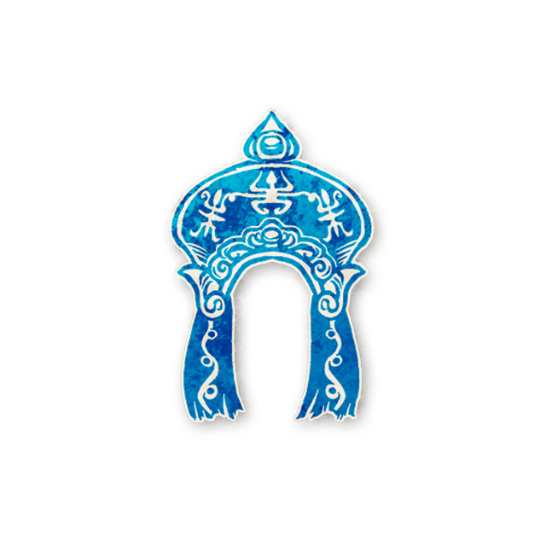
If you are “mad” that you are a good character: tonight, you might gain their ability until dusk (once per character).
The Face Changer is adept at assuming many different roles.
If the Face Changer is “mad” that they are a certain good character, they might be able to gain that character’s ability that night.
If the Face Changer gains an ability, they keep it until dusk.
The Face Changer cannot gain the same character’s ability more than once.
Only the Face Changer’s madness from the previous day is taken into account when deciding whether they gain an ability. If the Face Changer was sufficiently “mad” as the Empath for three days and was then sufficiently “mad” as the Snake Charmer on the fourth day, the Face Changer might still gain the Snake Charmer’s ability on the fifth night.
Some characters’ abilities (such as the Juggler, Gossip or Diva) may activate at night depending on the player’s actions during the day. If the Face Changer is “mad” that they are such a character, they need to make the appropriate actions for the ability to have any effect when they gain it at night.
On the first day, the Face Changer is “mad” that they are the Fortune Teller. That night, the Face Changer is woken to choose two players. They choose the Imp and the Preacher, and learn “yes”. On the second day, the Face Changer convinces the town that they are actually the Seamstress. The following night, they wake to choose the Preacher and the Sage, and learn “yes”. On the third day, the Face Changer claims to be the Dreamer, but does not provide sufficient explanation as to why they claimed a different character yesterday. The Storyteller decides not to give them the Dreamer ability. That night, the Face Changer does not wake.
On the first three days, the Face Changer is “mad” that they are the Steward. They gain the Steward’s ability on the second night and learn a good player, but gain nothing on the third and fourth nights. On the fourth day, the Face Changer is “mad” that they are the Knight. They tell the group that they suspect that the other player they learned is a Minion, which is why they did not want to come forth before. The Storyteller decides that the Face Changer has been sufficiently “mad” as the Knight. The fifth night, the Face Changer is woken and shown two players that are not the Demon.
At night, if you believe that the Face Changer has been “mad” that they are a good character whose ability they have not already gained, they gain that ability and wake when that character would normally wake. They have this ability until dusk.
Chinese name: 变脸师 (Bian Lian Shi)
Gstone’s English name: Face Changer
Explanation: Bian lian is the art of rapidly changing masks to assume new roles on stage. As no pun is lost in translation, Gstone’s translation can be kept.
When the Face Changer is “mad” about being a new good character, they need to be able to explain why they claimed to be a different character on previous days. Generally, a Face Changer might succeed in gaining one or two new abilities during a game, but you as the Storyteller is the final judge. If you believe the Face Changer has put in sufficient effort to act as a new character and explain their claim, you can reward them by giving them new abilities more than twice, even if the other players are not convinced.
Townsfolk

Good characters are good, drunk & know each other. Whoever wins, loses & whoever loses, wins. You can’t lose this ability.
The Actor conspires with the town to turn the tables on the evil team.
During the first night, wake all good players together and show them the Actor character token. All good players learn who is on the good team and, consequently, who is on the evil team, but they do not learn who is the Demon and who are Minions.
If the game ends due to the good team winning, the evil team wins, and if the game ends due to the evil team winnning, the good team wins.
Except for the Actor, all players with good characters are drunk. You do not have to wake them to use their abilities, as they all know an Actor is in play.
Good characters cannot change alignment when the Actor is in play. If an Actor enters play mid-game, all good players wake that night and learn each other.
Good Travellers do not wake to learn the good team, are not drunk and may still change alignment mid-game.
The Actor keeps their ability even if they are poisoned, drunk or dead. The Actor player cannot change characters.
If a Drunk or Marionette draws the Actor token, the Actor’s ability is not in play.
The Actor is in play. The game continues until only the Shabaloth and the Devil’s Advocate are left alive. The game ends and the good team wins.
The Actor is in play. At night, the Vigormortis decides to kill themself. The game ends and the evil team wins.
The Actor is not in play. One night, the Philosopher chooses to gain the Actor’s ability. All good players wake up together and learn each other.
The Actor learns the Mezepheles word and says it. That night, the Actor does not wake or turn evil. The next morning, the Actor pretends to have been turned evil to deceive the Mezepheles.
After the Minion and Demon info steps during the first night, wake all players who are good characters (good-aligned Travellers are not woken) together. Show them the Actor character token if you want. When the game ends, reverse the victory and announce this to the group.
Chinese name: 戏子 (Xi Zi)
Gstone’s English name: Opera Actor
Explanation: As mentioned before, there is little reason to specify opera here. Actor alone is available and clearly conveys what the ability does. The flavor text is from Shakespeare, which might not work very well with the clearly Oriental mask in the icon.
The ability is based on the update from season two of Festival of Lanterns, The Storm Is Coming. The original ability was this:
All Actors know each other and jointly reverse the victory conditions, even if dead. [All good players are Actors]
Actor & Spy
Only 1 jinxed character can be in play.
Actor & Evil Twin
Only 1 jinxed character can be in play.
Actor & Widow
Only 1 jinxed character can be in play.
Actor & Summoner
Only 1 jinxed character can be in play.
Actor & Riot
Only 1 jinxed character can be in play.
Actor & Legion
At any time, a Legion player can tell the Storyteller that they would like to die. Tonight, the Storyteller wakes all Legion players: if all agree, all die.
Actor & Leviathan
At any time, the Leviathan can tell the Storyteller that they would like to die. The Storyteller kills that player tonight.
Actor & Lil’ Monsta
At any time, the player holding Lil’ Monsta can tell the Storyteller that they would like to die. The Storyteller kills that player tonight.
Actor & Pukka
At any time, the Pukka can tell the Storyteller that they would like to die. The Storyteller kills that player tonight.
Actor & Pit-Hag
A Pit-Hag cannot create an Actor.
Actor & Boffin
The Demon cannot have the Actor ability.
Actor & King
The King does not become drunk due to the Actor’s ability.
Actor & Damsel
The Damsel does not become drunk due to the Actor’s ability.
Actor & Snitch
The Snitch does not become drunk due to the Actor’s ability.
Actor & Lunatic
The Lunatic does not become drunk due to the Actor’s ability, and is not included when the good players learn each other.
Actor & Atheist
The Actor cannot reverse the victory conditions on executing the Storyteller.
Actor & Goblin
The Actor cannot reverse the victory conditions due to the Goblin’s ability.
Actor & Fearmonger
The Actor cannot reverse the victory conditions due to the Fearmonger’s ability.
Actor & Pedant
The Pedant does not get drunk due to the Actor’s ability.
Townsfolk

Each night, when an evil player is chosen by an ability, you might be targeted instead (once per night), even if dead.
The Ambassador travels foreign lands and is often harassed by the locals.
The Ambassador’s ability can activate no more than once per night. It may activate each night, or only some nights. The Storyteller decides whether to activate their ability or not.
If a player uses their ability to actively choose another player, and if that player is evil, the ability may be redirected to the Ambassador. Abilities that do not involve a choice cannot be redirected by the Ambassador’s ability.
The Fortune Teller chooses the Seamstress and the Riot. The Storyteller decides that the Ambassador’s ability activates, making the Fortune Teller instead target the Seamstress and the Ambassador. The Fortune Teller learns "no".
The Pit-Hag chooses to turn an evil Turncoat into the Vigormortis. The Storyteller decides that the Ambassador’s ability does not activate. Later, the Cerenovus chooses themself and the Sage. The Storyteller decides to activate the Ambassador’s ability, and the Ambassador learns that the Cerenovus has chosen them to be "mad" that they are the Sage, or risk execution. The Cerenovus learns nothing.
Each night, if an evil player is targeted by an ability and the Ambassador’s TARGETED TONIGHT reminder token is not placed, you can choose to activate the Ambassador’s ability. If you do, resolve the ability as if the Ambassador was chosen instead of the evil player, and place the Ambassador’s TARGETED TONIGHT token next to the Ambassador character token.
At dawn, remove the TARGETED TONIGHT reminder token if it is placed in the Grimoire.
Chinese name: 使节 (Shi Jie)
Gstone’s English name: Ambassador
Explanation: Gstone’s name is fine, but alternatives like Envoy or Emissary can also be considered.
Outsider
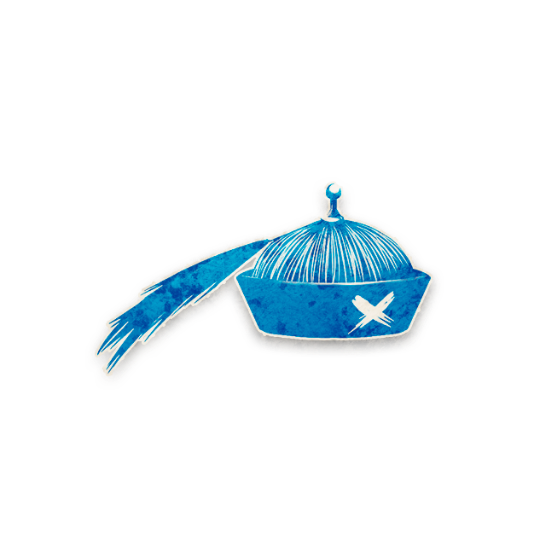
On your 1st night, choose another player. The 1st time one of you dies by execution, the other turns evil that night.
The Turncoat is at odds with another player.
On the first night, the Turncoat chooses another player. When one of them dies by execution, the other turns evil that night.
If either player dies for any other reason than execution, the other player does not turn evil. However, if the chosen player dies through some other way than execution, and the Turncoat then dies by execution, the chosen player still turns evil that night.
If the Turncoat dies from something other than execution, they lose their ability. If the chosen player later dies by execution, the Turncoat will not change alignment.
If the Turncoat chose an evil player, that player will not become good if the Turncoat dies by execution. Likewise, an evil Turncoat will not turn good if their chosen player dies by execution.
The Turncoat chooses the Snake Charmer. On the first day, the Snake Charmer dies by execution. The Turncoat turns evil that night.
The Turncoat chooses the Pit-Hag. On the next day, the Turncoat dies by execution. Nothing happens, since the Pit-Hag is already evil.
The Turncoat chooses the Philosopher, who is then killed by the Demon at night. The next day, the Turncoat dies by execution. That night, the dead Philosopher turns evil.
The first night, wake the Turncoat. They point to another player. Mark the chosen player with the RIVAL reminder token. Put the Turncoat to sleep.
If the Turncoat is the first of the two to die by execution, the player marked with the RIVAL reminder token turns evil tonight.
If the RIVAL player is the first of the two to die by execution, the Turncoat turns evil tonight.
Once a player turns evil, wake them and show them the YOU ARE info token, followed by a thumbs down for evil. Put them to sleep. Turn their character token 180 degrees in the Grimoire and remove the RIVAL reminder token.
Chinese name: 逆臣 (Ni Chen)
Gstone’s English name: Traitorous Minister
Explanation: Again, Gstone’s name is very long. Abbreviating it as Minister loses the adversative meaning, and abbreviating it as Traitor loses the political meaning. A name like Rebel has both, but implies the character is not part of the political system. I think Turncoat strikes the perfect balance here, as the word is often used in political contexts and clearly relates to the character’s ability.
Outsider

If you die, 1 alive neighbor might die tonight.
The Lummox brings bad luck to their neighbors.
When the Lummox dies, the Storyteller decides if their ability should activate.
If the Storyteller decides that the Lummox’s ability activates, an alive neighbor of the Lummox dies that night.
If the Lummox is poisoned or drunk when they die, or a dead player becomes the Lummox, nothing happens.
The Demon attacks the Lummox, who dies. The Storyteller decides not to activate the Lummox’s ability, and their alive neighbors do not die that night.
The Moonchild dies by execution and chooses the Lummox. Tonight, the Lummox dies, and so does the Baron, who is sitting next to the Lummox.
When the Lummox dies, decide whether to activate their ability. If you do, mark one of their alive neighbors with the Lummox’s DEAD reminder token. At dawn, declare that the player marked DEAD died in the night.
Chinese name: 煞星 (Sha Xing)
Gstone’s English name: Mr. Misfortune
Explanation: This is yet another Gstone suggestion that does not fit the pattern of the official BotC character names. The source text translates to evil star, and is an idiom for a person who brings misfortune. English doesn’t really have a good word for a bringer of bad luck, except maybe jinx – but that is already a game term. I choose the name Lummox, which comes close enough with the meaning ‘clumsy person’, and also sounds a bit astral, since lum and lux mean ‘light’. As a bonus, the novel The Star Beast is about an astral creature named Lummox!
Outsider

The Demon knows you’re in play. If they privately guess you (once): tonight, they may choose a player to die (even if you die).
The Pedant must hide from the Demon, or bring their teammates down with them.
The Demon starts knowing that the Pedant is in play.
If a Pedant is created mid-game, or if a player gains the Pedant ability, the Demon learns that the Pedant is in play, if they did not already.
At any time during the day, the Demon may privately speak to the Storyteller to guess who the Pedant is. If the Demon guesses correctly, they are awoken to kill a player that night, even if the Pedant dies after the correct guess.
If a dead player becomes the Pedant, the Demon does not learn that the Pedant is in play, and does not get to kill a player using the Pedant’s ability if they guess correctly.
If the Demon guesses correctly, they may choose an extra player when they wake tonight. If they choose to do so, that player also dies.
If the Demon guesses correctly but would normally not wake tonight, they are woken due to the Pedant’s ability before information-gathering Townsfolk wake.
If the Demon guesses correctly but becomes a non-Demon character before they are woken, they may still choose a player to die tonight.
The Chosen player dies due to the Pedant’s ability, not the Demon’s. Therefore, characters such as the Soldier are not safe from this death, and Minions killed by a Vigormortis using the Pedant’s ability do not keep their abilities.
If there is more than one Demon player, the Demons share one chance to make a correct guess. Once a Demon player has made their guess, guesses from other Demon players will have no effect. They do not learn if they guessed correctly, nor are they told whether any other Demon has already guessed.
If more than one player has the Pedant ability, the Demon can still only make one guess per game.
The No Dashii correctly guesses who the Pedant is. Tonight, the No Dashii chooses to kill the Poppy Grower, and then the Sage. The Sage does not wake to use their ability, as they didn’t die to the No Dashii’s ability.
The Demon correctly guesses who the Pedant is. Tonight, the Philosopher chooses to gain the Pedant ability, making the Pedant drunk. However, since the Pedant ability is in play and the Demon made a correct guess, the Demon can still choose to kill a player using the Pedant ability.
The Demon correctly guesses who the Pedant is. Tonight, the Courtier chooses the Pedant, who becomes drunk. The Demon does not get to use the Pedant ability, and thinks they guessed wrong.
During the first night, wake the Demon and show them the Pedant character token. Put the Demon to sleep.
During the day, the Demon may visit you in private at any time to guess which player has the Pedant ability. If they guess correctly and no Demon has already made a guess, put the GUESS USED reminder token next to the Demon player’s character token. If they guess wrong, put the GUESS USED reminder token next to the Pedant character token.
During the night, if the GUESS USED reminder token is placed next to a Demon player’s character token, after the Demon has used their ability, show them the Pedant character token. They shake their head no or point to a player. If they point to a player, that player dies. Mark that player with the Pedant’s DEAD reminder token. Move the Pedant’s GUESS USED reminder token to the Pedant’s character token.
At dawn, declare who died during the night.
Chinese name: 书生 (Shu Sheng)
Gstone’s English name: Pedant
Explanation: The connection between the name and the ability is unclear to me, but beyond that, it’s a good name for a Clocktower character.
Outsider
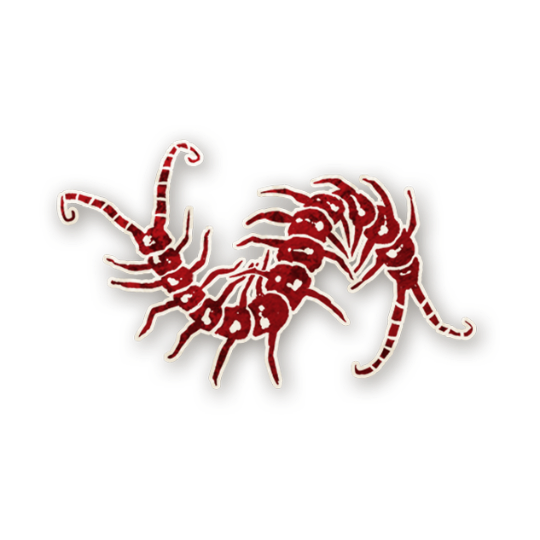
Each night*, if you were alive when nominated today, your nominator dies, even if you die first.
The Bug Keeper retaliates against their enemies.
If a living Bug Keeper is nominated during the day, the player who nominated them dies that night, even if the Bug Keeper died by execution.
If the living Bug Keeper was nominated by another evil player, that player still dies that night.
If the Bug Keeper is dead when nominated, the nominator does not die that night.
On the first day, the Juggler uses their ability and then nominates the Bug Keeper. Tonight, the Juggler dies without waking up or learning their info.
The Boomdandy nominates the Bug Keeper, who is executed and dies. That night, the Boomdandy dies.
On the second night, the Vigormortis kills the Bug Keeper. The third day, the dead Bug Keeper is nominated. The nominator does not die, as the Bug Keeper was not alive when nominated.
If the Bug Keeper is alive and a player nominates them during the day, mark that player with the DEAD reminder token.
Tonight, any players with the DEAD reminder token die, unless they are protected. Put a shroud on their character token and remove the DEAD reminder token.
Chinese name: 养蛊人 (Yang Gu Ren)
Gstone’s English name: Insect Keeper
Explanation: In brief, bug is shorter than insect, and the creature in the icon is not an insect. As the flavor text implies, this is not a character that’s meant to keep bugs as such, but a character that uses gu, a poison made from venomous animals that ate other venomous animals. Gu Keeper or similar would be an option for a more Chinese flair, but I think clarity is preferrable here.
Bug Keeper & Plague Doctor
If the Storyteller would gain the Bug Keeper ability, a living Minion gains the Bug Keeper ability in addition to their own ability, and learns this.
Minion

On your 1st night, choose a player: they learn the Vixen is in play. If you die by execution, they become evil tonight.
The Vixen charms a player to join the evil side if the Vixen dies.
During the first night, the Vixen chooses a player. They learn that the Vixen is in play.
If the Vixen is drunk or poisoned when they make their choice, the chosen player learns the Vixen is in play immediately once the Vixen becomes sober and healthy.
If the Vixen dies by execution, the player they chose turns evil that night.
If the player the Vixen chose is already evil when the Vixen dies by execution, nothing happens.
On the first night, the Vixen chooses the Philosopher. The Philosopher learns that the Vixen is in play. On the first day, the Vixen dies by execution. That night, the Philosopher turns evil, and learns this.
The Vixen was drunk the first night, when they chose the Alchemist. The Alchemist does not learn that the Vixen is in play until the second night, when the Vixen is sober.
The Minstrel is in play. When the Vixen dies by execution, everyone is drunk. As the Vixen is drunk that night, their chosen player does not turn evil.
During the first night, wake the Vixen. They point to any player. Mark that player with the CHARMED reminder token and put the Vixen to sleep. Wake the chosen player. Show them the THIS CHARACTER SELECTED YOU info token, followed by the Vixen character token. Put them to sleep.
When the Vixen dies by execution, turn the character token of the player marked CHARMED upside down. That night, wake the player marked CHARMED and show them the YOU ARE info token, followed by thumbs down for evil. If they were already evil, nothing happens.
Chinese name: 狐媚娘 (Hu Mei Niang)
Gstone’s English name: Charming Fox
Explanation: As mentioned above, I don’t want to use adjective+noun names if it can be avoided, and as far as names for charming fox monsters go, Vixen seems fine. There’s a good argument to be made against making the name clearly gendered, especially since we already have evil women in the Scarlet Woman, Harpy and Widow, but at least it fits the pattern.
Vixen & Heretic
Only 1 jinxed character can be in play.
Vixen & Plague Doctor
If the Storyteller would gain the Vixen ability, a living Minion gains the Vixen ability in addition to their own ability, and learns this.
Minion
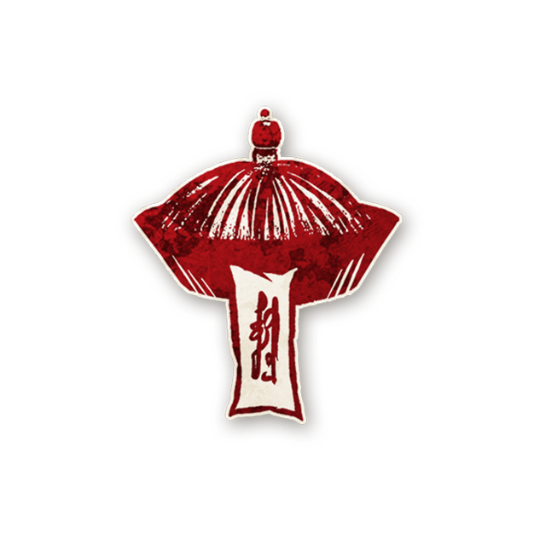
The 1st time your Townsfolk neighbors die, they register as alive. [−1 Outsider]
The Corpse Walker secretly turns their Townsfolk neighbors undead.
The first time a Townsfolk player neighboring the Corpse Walker dies, they turn undead and appear to survive. Their character tokens are shrouded in the Grimoire, but their life tokens on the town square are not flipped.
Undead players register as alive to other players’ abilities.
Only dead players can turn undead. If they are protected from dying, they also do not turn undead, since it is not the first time that they die.
Undead players are dead and have no ability. They are treated as if they are drunk or poisoned, waking as normal during the night but learning arbitrary info.
Abilities that activate upon death do not activate upon undeath, since undead players register as alive. Abilities that activate when you learn that you died still function as normal, since the undead player does not learn that they are dead.
If an undead player "dies" again, their death is announced. They cease to be undead and register as dead from then on.
If an undead Townsfolk player changes character type, they no longer register as alive to other players’ abilities, but they also do not learn that they are dead.
If the Corpse Walker is made drunk or poisoned, dies or is removed from the game when they are making one or both Townsfolk neighbors undead, those players no longer register as alive, nor do they learn that they are dead.
The Sage, the Butler, the Corpse Walker and the Innkeeper are sitting in a line. Tonight, the Demon attacks the Sage. Since the Sage is a Townsfolk neighbor of the Corpse Walker, they turn undead and lose their ability. The Sage does not wake tonight, and their death is not announced tomorrow morning. The next night, the Sage is attacked by the Demon again. They do not wake up, but their death is announced at dawn and their life token is flipped.
There are four players left alive: the Rascal, the Imp, the Corpse Walker and the Tea Lady. However, the Tea Lady is actually undead and only registers as alive because of the Corpse Walker’s ability. The town decides not to execute anyone. That night, the Imp kills the Rascal. The Storyteller announces that the game has ended and that the evil team has won, as there are only two living players left.
While setting up the game, before putting the character tokens in the bag, remove one Outsider character token and add one Townsfolk character token. (If there are no Outsider tokens to remove, do not add a Townsfolk token.)
The first time each Townsfolk neighbor of the Corpse Walker dies, they turn undead. Place the Corpse Walker's UNDEAD reminder token next to the dead player’s character token. Put a shroud on their character token in the Grimoire, but do not declare that they die and do not flip over their life token in the town square. If they died by execution, declare that they survived.
If an undead player dies again, declare that they died and flip over their life token in the town square.
Chinese name: 赶尸人 (Gan Shi Ren)
Gstone’s English name: Corpse Manipulator
Explanation: The name is taken from the English translation of Liao Yiwu’s book The Corpse Walker, which includes descriptions of priests carrying dead bodies to their homes in a manner that makes it look like the corpses are hopping on their own. Necromancer is an alternative, but it has vastly different connotations, evoking sorcerers who create zombies.
It is not recommended to have more than two undead players at a time, since this can make the game end unexpectedly early.
The undead state is summarized at the bottom of this document.
Corpse Walker & Plague Doctor
If the Storyteller would gain the Corpse Walker ability, a living Minion gains the Corpse Walker ability in addition to their own ability, and learns this.
Minion
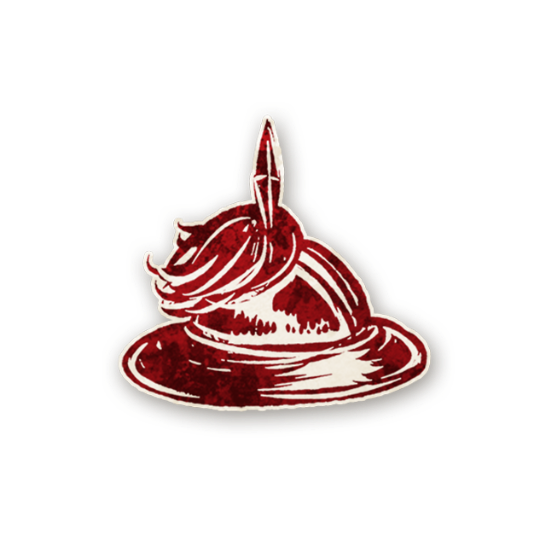
Players who are “mad” that they want to live or die (you start by choosing which) might be immediately executed.
The Imperialist provides a little “help” to those who want to die… or to those who don’t.
The first night, the Imperialist chooses whether to target players who want to die or players who want to live.
If a player says that they are okay with dying or living, the might be immediately executed in accordance with the Imperialist’s choice.
It is up to the Storyteller to decide whether a player has been sufficiently “mad” that they want to live or die.
If a player is “mad” that they want to live or die during the night, the Storyteller may choose to execute them at night. This does not count towards the maximum of one execution per day.
The execution happens immediately. If a player has expressed a will to live but then says they want to die, they cannot be executed for being “mad” that they want to live. Likewise, if it has been a while since a player was “mad” about wanting to live or die, they can no longer be executed for that.
The Imperialist has chosen “live”. Today, the town nominates the Recluse, who says that they do not mind dying. The Recluse does not gain enough votes, and is not executed.
The Imperialist has chosen “die”. The good Gambler and the good Gossip are sitting next to the Tea Lady. Today, the Gossip asks to be nominated and executed. The Storyteller immediately declares that the Gossip is executed. The *Gossip survives thanks to the Tea Lady, and the day ends.
The Imperialist has chosen “die”. At night, the Soldier asks the Demon to attack them. The Storyteller declares that the Soldier is executed. The Soldier is declared dead at dawn.
During the first night, wake the Imperialist and show them the LIVE and DIE reminder tokens. They point to one. Place that reminder token next to the Imperialist character token in the Grimoire. Put the Imperialist to sleep.
During the game, if you belive that a player is “mad” that they want to live or die, depending on which the Imperialist chose, you can decide to execute them. Declare to the group that this player is executed (do not say why). If this happens during the day, the day ends.
Chinese name: 禁卫军 (Jin Wei Jun)
Gstone’s English name: Imperial Guard
Explanation: The name Imperial Guard is stretching the length limits, and is confusing alongside the (now renamed) Royal Guard. Since the guard part is less relevant to what this ability does either way, I’m just removing that, leaving room for other guard characters in the future. It’s a bit difficult phrasing this as an ability beginning with “On your 1st night” rather than “Players”, so the former part is bracketed.
The ability used is the modified version from season two of Festival of Lanterns. The original ability was this:
If players are “mad” that they want to die, they might be immediately executed.
Minion

Each night*, choose a player: they die and, if an Outsider died today, register as alive, & another player dies. [+1 Outsider]
The Qiong Qi secretly kills more players when Outsiders die.
If an Outsider dies during the day, the player that the Qiong Qi kills that night turns undead, registering as alive. The Storyteller chooses another player, who dies normally.
The Qiong Qi does not learn whether a target that appears to live has turned undead or was protected from death.
Undead players register as alive to other players’ abilities.
Only dead players can turn undead. If they are protected from dying, they also do not turn undead, since they do not die.
Undead players are dead and have no ability. They are treated as if they are drunk or poisoned, waking as normal during the night but learning arbitrary info.
Abilities that activate upon death do not activate upon undeath, since undead players register as alive. Abilities that activate when you learn that you died still function as normal, since the undead player does not learn that they are dead.
If an undead player "dies" again, their death is announced. They cease to be undead and register as dead from then on.
If the Qiong Qi is made drunk or poisoned, dies or is removed from the game when they are making players undead, those players no longer register as alive, nor do they learn that they are dead.
The Mutant dies by execution due to their own ability. That night, the Qiong Qi chooses the Artist. The Storyteller decides that the Recluse dies. At dawn, the Storyteller announces that the Recluse died. Nobody learns that the Artist is also dead.
There are 3 alive players left and 2 undead players. The living Assassin is executed and dies. Since there are only 2 living players left, the game ends and the evil team wins.
The Recluse was killed by the Psychopath during the day. That night, the Exorcist chooses the Qiong Qi, who does not wake to choose a player. The Storyteller chooses a player who dies due to the Qiong Qi’s ability, as this happens without the Qiong Qi’s input.
While setting up the game, before putting character tokens in the bag, add one extra Outsider character token and remove one Townsfolk character token.
If an Outsider dies during the day, place the Qiong Qi’s OUTSIDER DIED reminder token next to that Outsider’s character token in the Grimoire.
Each night except the first, wake the Qiong Qi. They point to any player, then goes back to sleep.
If there is no OUTSIDER DIED reminder token placed, the chosen player dies—mark them with the DEAD reminder.
If the OUTSIDER DIED reminder token is placed, the chosen player dies and turns undead (unless they can’t die for some reason). Place an UNDEAD reminder token next to the chosen player’s character token, and DEAD reminder token next to another player.
At dawn, place shrouds on any character token marked DEAD or UNDEAD, and announce that any players marked DEAD died in the night. Do not announce that players marked UNDEAD died in the night.
Undead players register as alive. They can nominate and vote normally, but have no ability and are treated as if they are drunk or poisoned.
Chinese name: 穷奇 (Qiong Qi)
Gstone’s English name: Qiong Qi
Explanation: The Qiong Qi (and the Corpse Walker) uses the mechanic undead, which I think is a better name than corpse. The ability means the affected player registers as alive but is dead for all other intents and purposes (they’re treated as poisoned for the purpose of their own ability). I had used “undead” in the ability text, as “registers as alive” is a bit long, but it still seems to fit.
It is not very fun or interesting if the game ends early because there are a lot of undead players. When 2 or more players are undead, it is recommended to use the Qiong Qi’s extra death to kill an undead player a second time, to make them register as dead. If another ability allows the Storyteller to choose who dies, that can also be used for this purpose.
The undead state is summarized at the bottom of this document.
Demon
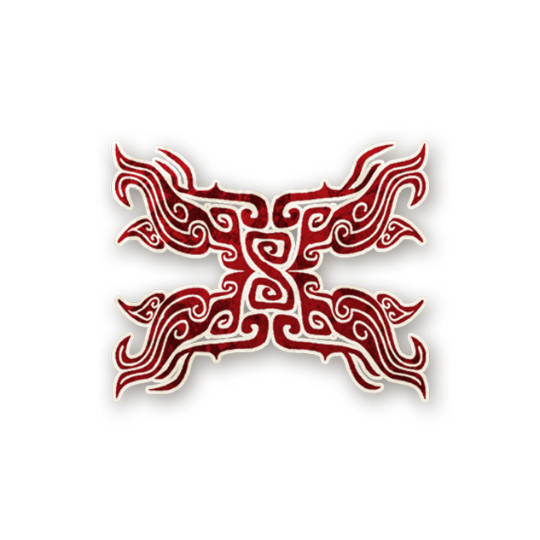
Each night*, choose a player: they die. If a Townsfolk neighbor dies this way, all good non-Travellers are poisoned until dusk.
The Hun Dun waits for opportunities to poison the entire good team.
If the Hun Dun kills a Townsfolk neighbor using its ability, all good players except Travellers are poisoned until dusk tomorrow.
The good team is made drunk even if the Townsfolk neighbor killed by the Hun Dun is evil.
If the Hun Dun’s Townsfolk neighbor has an ability that activates when they die, the ability is resolved before all good players become drunk
If the Hun Dun attacks a Townsfolk neighbor who does not die (due to being protected or already being dead), the Hun Dun does not make anybody poisoned.
The Hun Dun also poisons any good Minions and Demons.
If a player turns good during the period when all good players are poisoned by the Hun Dun, they are immediately poisoned. If a player turns evil during that period, they immediately become healthy.
The Hun Dun is neighboring the Snitch, who neighbors the Flowergirl. At night, the Hun Dun attacks the Flowergirl. The Flowergirl dies and all good players are poisoned until dusk. The next night, the Pit-Hag turns the Snitch into the Mathematician, and the Hun Dun attacks the Mathematician. The Mathematician dies, and all good players are poisoned until dusk.
All good players are poisoned due to the Hun Dun’s ability. The evil Cult Leader turns good due to their own ability, and is immediately poisoned. The next day, all good players agree to join their cult, but nothing happens.
Each night except the first, wake the Hun Dun. They point at any player. Put the Hun Dun to sleep. The chosen player dies: mark them with a DEAD reminder.
If the chosen player is a Townsfolk neighbor of the Hun Dun, all good players except Travellers are also made poisoned. Place the GOOD ARE POISONED reminder in the middle of the Grimoire. Remove the reminder at dusk.
Chinese name: 混沌 (Hun Dun)
Gstone’s English name: Hun Dun
Explanation: The four Demons keep their Chinese names.
Demon

Each night*, choose up to 4 non-Traveller players (or 1 Traveller): if all are different character types, they die. [+1 Outsider]
The Tao Tie sometimes gets so ravenous it kills several players.
Each night except the first, the Tao Tie can choose up to 4 non-Traveller players. If no two of them are the same character type, all chosen players die.
The Tao Tie can choose no one.
If the Tao Tie successfully kills more than one player, they chosen players die in the order they were chosen.
If the Tao Tie chooses a Traveller, they cannot choose any other player.
The Tao Tie chooses the Fortune Teller, the Drunk and the Assassin. All 3 chosen players die.
The Tao Tie chooses the Undertaker, the good Goon and the Baron, and is the first to choose the Goon tonight. Since all 3 chosen players have different character types, the Undertaker dies, but the Tao Tie then becomes drunk due to the Goon’s ability. The Goon turns evil, and both the Goon and the Baron survive.
While setting up the game, before putting character tokens in the bag, add one extra Outsider character token and remove one Townsfolk character token.
Each night except the first, wake the Tao Tie. They point at up to 4 players, or shake their head no. Put the Tao Tie to sleep. If no character type is represented more than once among the chosen players, all chosen players die in the order chosen—mark them with DEAD reminder tokens.
Chinese name: 饕餮 (Tao Tie)
Gstone’s English name: Tao Tie
Explanation: The Chinese ability text states that the Tao Tie can choose any number of non-Traveller players, but that’s long and the ability text is already pushing the limits. As there are currently only 4 non-Traveller character types, I put the limit there; realistically, the Tao Tie rarely wants to go above 2 and will almost never have a reason to go above 3.
Demon

Each night*, choose a player: they die. If you die, an alive Minion instead loses their ability, if possible. You learn no Demon info.
The Tao Wu draws strength from its Minions to extend its own life.
If the Tao Wu is about to die, and a living Minion still has their ability, the Tao Wu does not die, and the Minion instead loses their ability. If no alive Minions have their ability, the Tao Wu dies.
If an alive Minion is drunk, poisoned, or has a No Ability reminder token, they have no ability to sacrifice for the Tao Wu.
A Minion might gain a No Ability reminder token by using a once per game ability, by being chosen by the Preacher or by sacrificing it to the Tao Wu.
The Witch does not lose their ability by only 3 players being alive, since no reminder token is placed.
Good Minions’ abilities can also be expended for the Tao Wu.
The Tao Wu does not wake up for the Demon info step and does not learn who their Minions are or what characters are not in play. If a Lunatic believes themself to be the Tao Wu, they also do not wake to learn anything at this time. Due to their own ability, the Tao Wu also does not wake to learn anything when the Poppy Grower dies.
The Psychopath is in play, and has already killed two players using their ability. Yesterday, the Tao Wu was executed but did not die, and the Psychopath instead lost their ability, but did not learn this. On the next day, the Psychopath announces that they kill another player, but nothing happens. The town executes the Psychopath, who dies without playing roshambo.
The Tao Wu is executed. There are two Minions in play: the Assassin who used their ability to kill the Soldier, and the dead Cerenovus who kept their ability due to the Vigormortis’ ability. Since there is no alive Minion with an ability, the Storyteller declares that the Tao Wu dies.
The Poppy Grower is in play, and the evil team do not know each other. At night, the Poppy Grower dies, and the Minions learn the Demon, who is the Tao Wu. The Tao Wu does not learn their Minions, due to their own ability.
Do not wake the Tao Wu during the first night.
Each night except the first, wake the Tao Wu. They point to any player. That player dies—mark them with the DEAD reminder. Put the Tao Wu to sleep.
If the Tao Wu is about to die and there are alive Minions that are not marked with DRUNK, POISONED or NO ABILITY reminder tokens, choose one of them and mark them with the Tao Wu’s NO ABILITY reminder token. The Tao Wu does not die.
Chinese name: 梼杌 (Tao Wu)
Gstone’s English name: Tao Wu
Explanation: To non-Chinese ears, Tao Tie and Tao Wu might be easily confused, but I have no other reason to change either name.
Tao Wu & Scarlet Woman
The Scarlet Woman registers as having no ability to the Tao Wu.
Tao Wu & Evil Twin
The Evil Twin registers as having no ability to the Tao Wu.
Tao Wu & Mastermind
The Mastermind registers as having no ability to the Tao Wu.
Tao Wu & Organ Grinder
If the Tao Wu is about to be executed and the alive Organ Grinder has their ability, the Storyteller announces that no one is executed.
Tao Wu & Marionette
The Tao Wu does not learn who the Marionette is. If the Marionette has no ability due to the Tao Wu’s ability, the Tao Wu learns who the Marionette is; the Marionette still thinks they are a good character.
Tao Wu & Hatter
If the Tao Wu player changes character, any Minion that lost their ability due to the Tao Wu ability dies immediately.
Tao Wu & Pit-Hag
If the Tao Wu player changes character, any Minion that lost their ability due to the Tao Wu ability dies immediately.
Tao Wu & Engineer
If the Tao Wu player changes character, any Minion that lost their ability due to the Tao Wu ability dies immediately.
Tao Wu & Snake Charmer
If the Tao Wu swaps characters with another player, Minions that lost their ability due to the Tao Wu ability do not get their abilities back.
Tao Wu & Barber
If the Tao Wu swaps characters with another player, Minions that lost their ability due to the Tao Wu ability do not get their abilities back.
Demon

Each day, you may publicly choose a player (not yourself) to pick a non-Demon ability: you might gain it until dawn.
The Pauper begs for abilities from other players.
The player chosen by the Pauper cannot refuse to choose a character.
The chosen player must publicly choose a non-Demon character available on the current script.
If the Storyteller thinks the chosen ability would be too powerful for the Pauper, the Pauper might not gain the ability. The Pauper is not told whether they gained the chosen ability or not.
The Pauper does not change characters when they gain the chosen ability, and they lose it again at the next dawn.
If the Pauper gains a ability that activates on the 1st night, it activates tonight after all deaths have occured.
The good Pauper selects a good player, who chooses the Assassin. The Storyteller deems the Assassin ability to be too powerful for the good team at this point in the game, and does not wake the Pauper to use the ability tonight.
It is the first day. The evil Pauper publicly selects an evil player, who chooses the Puzzlemaster. The Storyteller decides that the Pauper gains this ability, making the Fool drunk. Later that day, the Fool is executed and dies.
Each day, the Pauper may publicly choose another player. If they do, the chosen player must choose a non-Demon character from the script. If you decide that the Pauper does not gain this ability, nothing happens. Otherwise, if the character is in play, mark that character token with the BEGGING reminder token, or if not in play, replace the Pauper character token with the chosen character token and mark them with the IS THE PAUPER reminder token. That player remains the Pauper but gains the ability on their character token.
At night, wake the Pauper if they should wake due to the gained ability. If the chosen character is in play, decide who wakes first.
At dawn, remove the BEGGING or IS THE PAUPER reminder token, and put the Pauper character token back if needed.
Chinese name: 叫花子 (Jiao Hua Zi)
Gstone’s English name: Tattered One
Explanation: We want to avoid adjective-centered character names, and we already have a character called Beggar. Fortunately, English has plenty of synonyms here, and I choose Pauper as it evokes someone tattered. Other options could be Vagrant or Vagabond.
Traveller
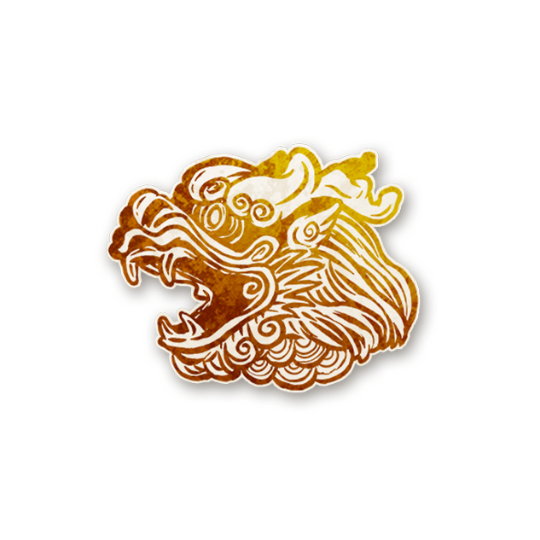
On the final day, something good might happen to the most engaged player.
Use the Qilin to encourage players to participate more actively and making the game more engaging for everybody.
Some players may be shy or timid, especially if they don’t know the other players. Add the Qilin to encourage people to engage with each other in different ways.
When adding the Qilin, the Storyteller must define what it means to be "the most engaged player", so that it doesn’t feel unfair when something good unexpectedly happens to a player on the final day.
Do not use the Qilin in every game. It works well for breaking the ice, but if it used in every game, players might focus more on becoming the "most engaged" player than on playing normally.
It is the first game of the night. The Storyteller decides to add the Qilin to the first game to break the ice, and rules that the player who talks most is the most engaged one. On the final day, 3 players are alive. The Storyteller announces that May was the most engaged player. May is dead, and the Storyteller decides to resurrect her.
There are many shy players in the game. The Storyteller decides to add the Qilin, ruling that the player who gives the funniest speech when they die is the most engaged one. On the final day, the Storyteller decides that Ming is the most engaged player. Nothing special happens, but Ming enjoyed himself more during the game.
At the start of the game, declare that the Qilin is in play. Add the Qilin token to the Grimoire. Declare what players must do to be considered the most engaged player.
During the game, place the Qilin’s SOMETHING GOOD reminder token next to a player that does what it takes to be considered the most engaged.
On the final day, announce who was the most engaged player and decide a good thing that happens to them, if any. The good thing that happens should not provide the player or their team too much of an advantage.
Chinese name: 麒麟 (Qi Lin)
Gstone’s English name: Qi Lin
Explanation: The form Qilin is fairly common in English when referring to the legendary creature. An alternative could be the Japanese Kirin. The Chinese ability text says that something good might happen to the “luckiest” player, but the almanac clarifies that “luckiest” is defined in advance in order to promote social play and a healthy atmosphere, so “most engaged” seems clearer.
The original Chinese version of the almanac also says that the Storyteller should write down the requirements for being "luckiest" in the beginning of the game, but not share them with the group until the end.
Fabled
Registering as alive
The Corpse Walker and the Qiong Qi can make dead players register as alive. This is called the undead state.
If an ability makes a player register as alive, they do not learn that they are dead: they appear to survive execution, their night death is not announced at dawn, their life token is not flipped in the town square, and they register as alive to abilities and may vote and nominate as normal. However, their character token is shrouded in the Grimoire, they have no ability (as if they were drunk or poisoned), and they are considered dead for the purposes of ending the game. Dead players that register as alive are marked with UNDEAD reminder tokens.
Players protected from dying are also protected from turning undead. If an undead player “dies” again, their death is announced and their life token is flipped. Abilities that activate upon death do not activate upon undeath, nor when the player’s death is announced (from “dying” again). Abilities that activate upon learning that you died work normally, as the player did not learn that they died when they first turned undead.
If the character causing a player to register as alive is drunk, poisoned, dead or removed from the game, the undead player stops registering as alive to other abilities, but they will not learn that they are dead, as the Storyteller does not manage the town square.
It is not recommended to have more than one or two undead players in town at a time, as this may lead to the game ending unexpectedly early, which is not very fun or interesting.
Jinxes
























